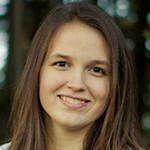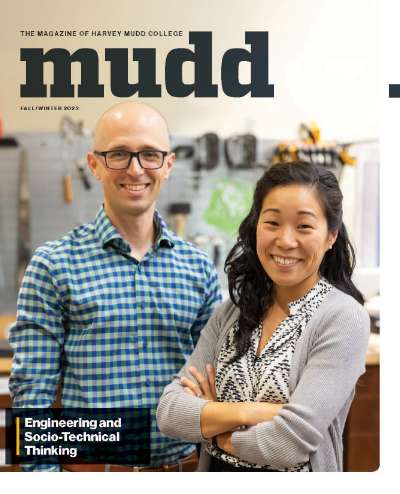Lifelong Learners, Career Teachers
June 9, 2017
Anyone assuming that Harvey Mudd College students head straight to graduate school or into a STEM-related career after graduation would be mostly correct. In fact, according to the Office of Career Services’ annual senior survey, about 60 percent of the class of 2017 expect to work full time and are bound for jobs at Facebook, Google, Microsoft, Northrop Grumman, Oblong Industries, Yelp and Space X, to name a few. Most of the remaining students are enrolled or expect to be enrolled in graduate programs. But there are always a few graduates who take a different path, like Sabine Fontaine ’17 (physics) and Beverly Yeh ’14 (biology), who will spend the next two years working with Teach For America in Rhode Island and Massachusetts, respectively.

Beverly Yeh ’14
Yeh was accepted to Teach For America after graduating from Harvey Mudd, but she deferred her start date and spent three years working in the Japan Exchange and Teaching (JET) program, where she taught English to Japanese elementary school students in Awara, Fukui Prefecture. She says she’s always been interested in “understanding how people learn and develop themselves both inside and outside the classroom.”

Sabine Fontaine ’17
Fontaine had planned to become a teacher and started thinking about it more while at Mudd. “I decided to take a serious look at a career in education at the end of my junior year,” she says. “I participated in Teaching Opportunities in the Physical Sciences at MIT, a summer program for physics majors interested in teaching. In my senior year, I took some education classes at Claremont Graduate University, and I interned in a physics class at Claremont High School. Those experiences confirmed that teaching was something that I could do.”
In addition to wanting to teach, the two women also share a passion for service, which fits with Teach For America’s goal of recruiting people who are committed to expanding opportunity for the nation’s highest-need children. Members of the program commit to teach for two years in urban and rural low-income public schools in one of 53 regions, partnering with communities most impacted by educational inequity.
“Education is so much more than a challenging curriculum or good teacher,” says Yeh, who gained valuable experience through her involvement in The Claremont Colleges’ Science Bus program and through Harvey Mudd’s Homework Hotline. “Government policy, families, school vision—all contribute to a student’s learning experience. I wanted to join Teach For America to gain a more holistic viewpoint of where the educational gap in our country lies.”
Fontaine seeks a similar understanding. “I see many inequities in the public school system, and I feel like I have barely scratched the surface,” she says. “I believe one root of the inequities in STEM is intertwined in K–12 education, and I hope I can do my part in banishing those inequities through educating my students and giving them cool STEM issues to think about.”
According to Teach For America, many of its alumni stay in education as teachers or as school and district leaders, while others continue their impact from sectors such as law, business, medicine, policy or nonprofit work.
Fontaine and Yeh seem to be on track to fill those expectations, but in true Harvey Mudd fashion, both are still open to innovation. “Sometimes I imagine myself starting a secondary school,” says Fontaine.
Yeh also looks forward to discovering new possibilities. “Teaching is a career where I know I can always learn something new, whether it’s building relationships or planning curriculum that is actually applicable to my students’ lives,” she says.
